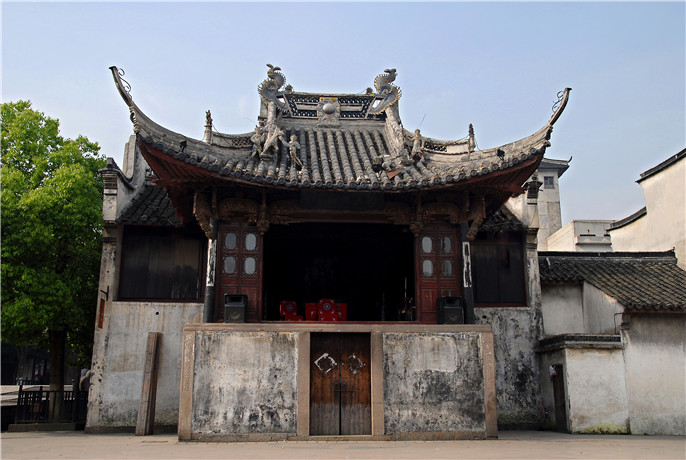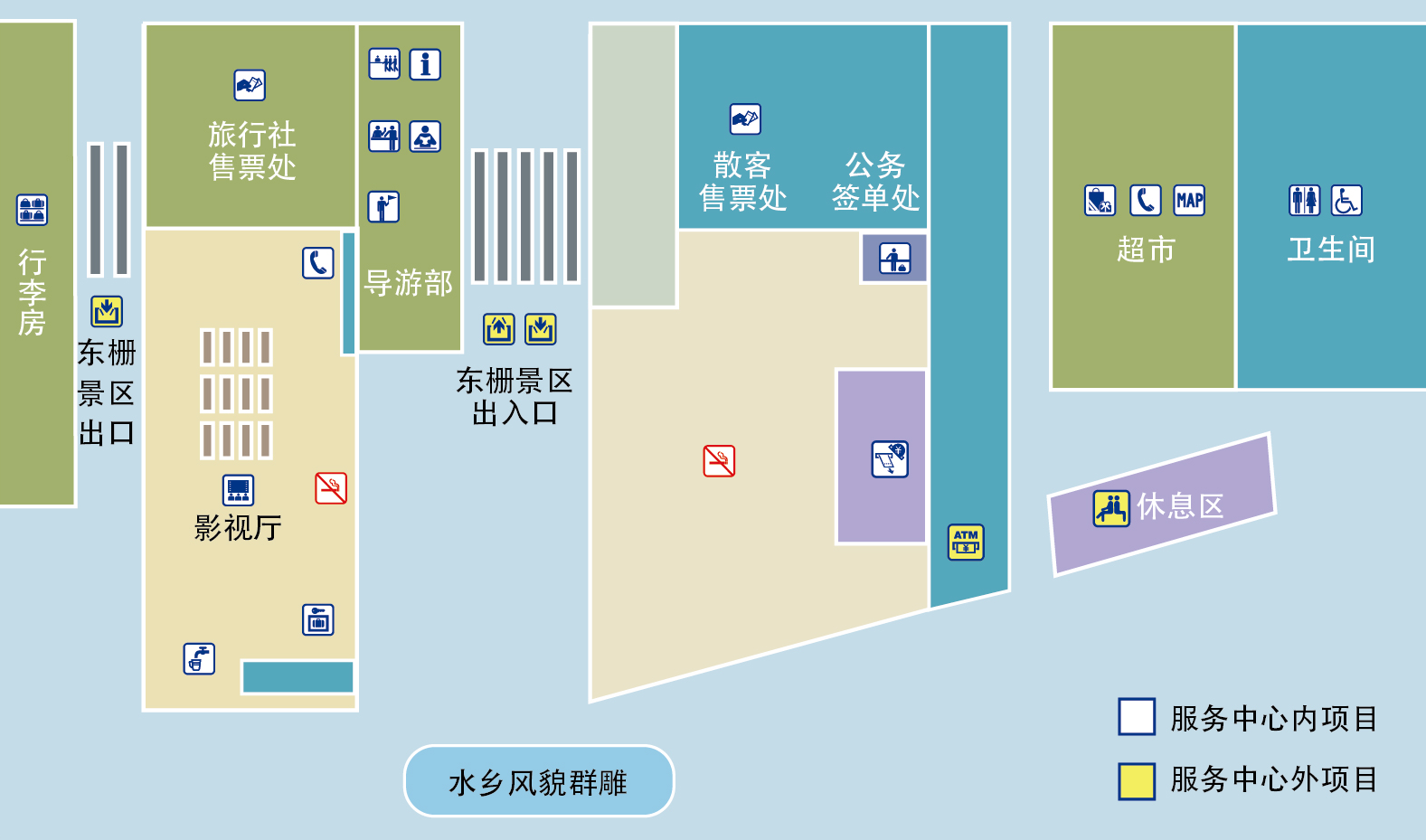

Flower drum opera

The ancient stage located in the Xiuzhen Temple Square is an auxiliary building of the Xiuzhen Temple. It was built in the 14th year of the Qianlong reign of the Qing Dynasty (1749) and has been repeatedly damaged like the Xiuzhen Temple. However, after the renovation in 1919, it has been preserved to this day. The stage covers an area of 204 square meters, facing Xiuzhen Temple across Guanqian Street to the north, Dongshi River to the south, and Xinghua Bridge to the east. The stage has a gable and hip roof, with cornices and raised corners, exuding a solemn and elegant atmosphere. The sparrows between the beams and columns are all exquisite wood carvings with high artistic value. The stage has two floors, with the bottom layer surrounded by bricks and stones, and the stage frame is 3.31 meters high. There are side doors and front doors for entry and exit. The side gate connects to the river port, and there is a small ladder at the back of the ground floor that connects to the tower. You can also descend from the river port to the boat through a flip gate. The tower is divided into two parts: front and rear, with a dressing room at the rear and carved low windows, which are spacious and bright; the front is the stage, facing the square.
In the old days, the pillars on both sides of the stage had couplets, and this stage also had a pair of couplets: "A gong and drum scene awakens the spring dream of the world; the two tones of the palace and commerce bring the heavenly immortals." A banner hung above the center reads, "Learn from ancient times“. In the past, on the God of Wealth Fair on the fifth day of the first lunar month, the Dongyue Temple Fair on the twenty eighth day of the third lunar month, and the Marshal Wen's Fair on the fifteenth day of the fifth lunar month, divine plays were performed on the stage to entertain the gods in the Xiuzhen Temple. Usually, there are also some "punishment plays" were performed. Punishment plays are a traditional method of resolving disputes in Wuzhen. If anyone harms the public interest and commits public anger, the parties involved must pay to have the troupe perform in front of the gods to show the repentance.
After the Revolution of 1911, the stage and the square became places for mass gatherings, and they also served as a stage for anti-Japanese propaganda. In 1937, the Second Group of Shanghai Salvation came to Wuzhen to publicize the anti-Japanese war, and performed the then famous living newspaper drama Put Down Your Whip on this stage. Now, the stage has been restored to the lively scene of the past, with performances from morning till night, and the Huagu Opera (a local opera in Tongxiang) is performed. Outsiders may not understand the singing, but from the infatuated expressions of the local residents in the audience, they can deeply understand the infinite charm of local culture.


